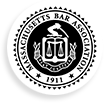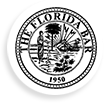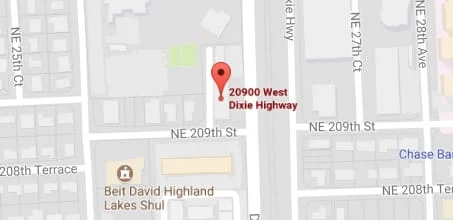On behalf of Law Offices of Frye, Fortich & Garcia, P.L. | June 28, 2021 |EstateAdminstration & Probate
A will’s job is to legally protect the assets and wishes of a person who passes away. The probate process ensures that the will is legal and carries out the way its owner intended.
With or without a will in place, deciding how to distribute assets after a loved one passes away falls on the probate court. However, because a will can help speed up this process, probate without a will can sometimes take more time and be more complicated than probate with a will.
Probate Without a Will
Dying without a will in place requires tweaks in the regular probate process that would handle the legalities of a will. Each state has laws known as intestate succession laws that govern the probate process when there is no will involved.
Benefits of Probate When There’s No Will
It’s not uncommon for family members of the deceased to want to avoid probate without a will in place. The thought of going through a probate court can be daunting. But you might also wonder, “How do I deal with an estate without a will?” There are several benefits of allowing the probate process to help you through this challenging time.
First, probate can ease some of the responsibilities that you, as a family, are already shouldering. You may have medical bills to settle and funeral arrangements to make. An experienced probate lawyer can walk you through any questions you have and take care of legalities that you shouldn’t need to worry about.
Probate can also help families work through disputes that may arise during the settlement of assets. When there are several claims to the deceased’s assets, probate can work through conflicts by basing decisions on Florida’s Probate Code: Intestate Succession and Wills.
Finally, probate can help a family with complicated matters that sometimes result from a loved one’s death.
Creditors, for example, can come after other family members to settle a debt. Probate can work with creditors to pay the debt from the assets of the deceased and reduce the amount of time a creditor can stake a claim on the debt. Probate can also settle ownership issues related to vehicles, real estate, and businesses.
What’s the Role of the Court?
Probate court ensures that each step in the probate process is carried out legally and maintains the best interests of the deceased, their assets, and their family members. Probate court exists to assist the family in distributing assets to keep the probate process as uncomplicated as possible.
The court also must decide who has power of attorney after death if there is no will. Most states, including Florida, appoint the deceased’s spouse as power of attorney, followed by a child of the deceased if no spouse exists. In other cases, the court may appoint a close family member.
Starting Probate Without a Will
You have one of two pathways to start probate without a will. One way is to begin the process yourself by filing a petition with the probate court within the county in which the deceased lived. You’ll need to provide the death certificate and fill out the applicable paperwork the court requires. You also need to notify the descendants of the deceased of the petition and court hearing.
Alternatively, you can contact a probate lawyer to walk you through the process and help you get started. A lawyer experienced in the probate process can be helpful to lean on when you get confused or want to understand your options better.
Testate Estate vs Intestate Estate
A testate estate is one that has a legal, valid will. An intestate estate is one that does not have a legal, valid will. Some intestate estates may have a personal will from the deceased that has never been legalized and may not stand in probate court. For this guide’s purposes, we are referring to intestate estates in which no legal will exists.
Appointing a Personal Representative
The court appoints the personal representative of an estate. However, the person who files to start the probate process is often the person who accepts the title of the personal representative and is willing to take on that responsibility.
If the court finds that individual not to be the best person for the task, the court will appoint another person. This individual is often a spouse or child of the deceased.
Identifying the Heirs When There’s No Will
When there is no will in place, the probate court must determine who are rightful heirs to property and other assets of the deceased. Most states follow a similar order when deciding who are heirs to the deceased, including spouses, children, and parents.
When the court is unable to find heirs, the estate typically moves to the state to claim ownership.
Who Inherits When There’s No Will?
Intestate succession laws determine how to distribute assets among them when no will is in place. This varies between states. Generally, a spouse receives most of the assets and property, followed by children, parents, grandparents, and other blood relatives of the deceased.
Distributing the Estate Assets
It’s the responsibility of the probate court to distribute the estate assets of the deceased. The court will align this process with state law, considering any family members who may have ownership of the assets.
You might wonder what happens if you don’t do probate and there are assets to distribute? All states have laws that govern the distribution of estate assets with no will in place. For example, Florida estate laws state that assets partly owned by a spouse or domestic partner must first go to them, followed by children, parents, grandparents, or other relatives.
Concluding the Probate Process
The probate process when there is no will culminates with a court order that details heirs and distribution of assets. This is a legal order that the family must follow and can use in court to settle any future disputes over the estate. Once the personal representative distributes all property, the court closes the case with a final order.










